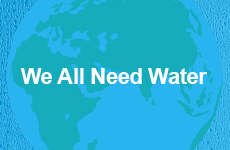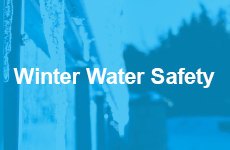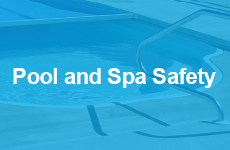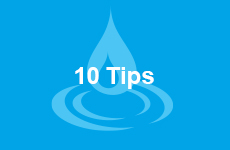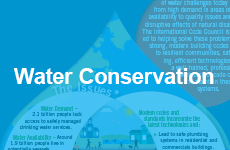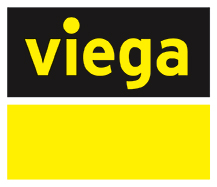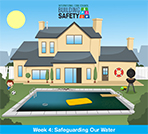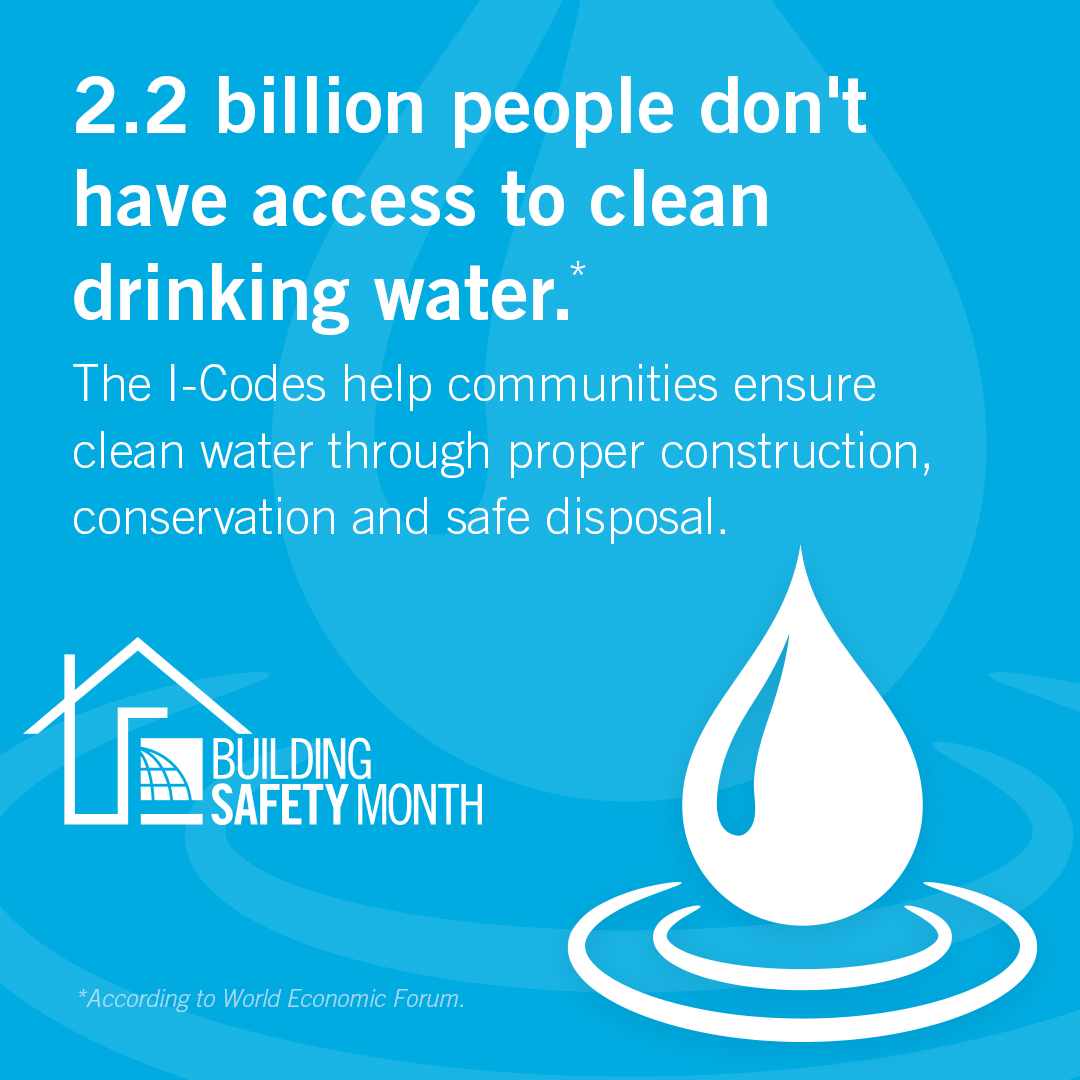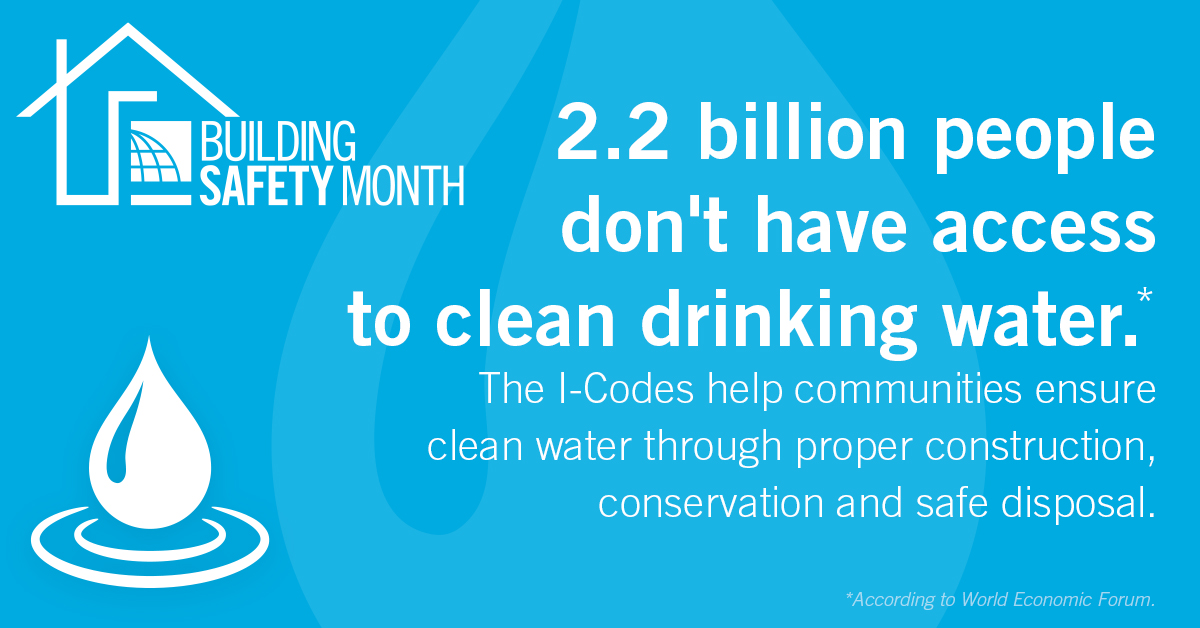
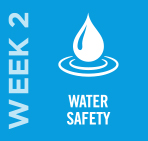
Water Safety
WEEK TWO // May 11–17, 2020

Water Safety
WEEK TWO // May 11–17, 2020
Clean water is the world’s most precious commodity. According to World Health Organization estimates as of June 2019, 785 million people lacked even a basic drinking-water service, including 144 million people who are dependent on surface water. Building, plumbing and green codes help guard it for future generations through proper construction, conservation and safe disposal.
Code officials are vigilant protectors of our water supply. Because of their dedicated service, you can turn on the tap in your home and draw sufficient, clean water. They take nothing for granted, so you can.
As a homeowner or renter, you need to pay attention to the water supply to your home even if your community offers water and sewage treatment. If there are faulty or no backflow protectors in your home, cross-contamination can happen even while residents are filling their backyard swimming pools, drawing some of the pool’s chlorine into the home.

Water Efficiency
Water conservation and efficiency has become increasingly important in recent years due to water scarcity, droughts and water contamination in many areas of the world.
The Code Council and the Residential Energy Services Network (RESNET) partnered on a water ratings standard, known as HERSH20, that builders can use in the U.S. to evaluate and market a home’s water usage efficiency. Real estate agents are beginning to take notice of the value of such water efficiency ratings, not just in California, but in other areas where potable water may be a concern.
The U.S. Environmental Protection Agency’s (EPA’s) WaterSense Program is a major water efficiency initiative based in the U.S. This important initiative was developed to help consumers identify water efficient products that meet EPA’s criteria for efficiency and performance. Since its creation in 2006 through the end of 2018, WaterSense has helped Americans save a cumulative 3.4 trillion gallons of water and more than $84.2 billion in water and energy bills, according to the EPA. Additionally, the use of WaterSense labeled products saved 462.5 billion kilowatt-hours of electricity. ICC Evaluation Service (ICC-ES), a member of the Code Council’s family of solutions and an industry leader in technical evaluations of building products, is an EPA-licensed certifier. To learn more about ICC-ES WaterSense Programs, click here.
Swimming Pool and Backyard Safety
During warm weather seasons, homeowners and renters should take the time to check their outdoor areas for potential safety hazards. Proper inspections now can help to keep your family and friends safe in the future.
Nationally, drowning is a leading cause of death for children under the age of five. Practice constant, adult supervision around any body of water, including pools and spas. And, if you're considering a swimming pool purchase, contact your local Building Department first to determine exactly what permits are needed and what requirements you must follow.
The Code Council supports drowning prevention and has a close partnership with the National Drowning Prevention Alliance.
Pool Safely is a national public education campaign that works with partners around the country, including the Code Council, to reduce child drownings and entrapments in swimming pools and spas. Take the pledge and get a free pool safety kit.
The Code Council provides building safety solutions, technical resources, product certification and training for plumbing and swimming pool professionals – part of what is known as our PMG program. The acronym PMG refers to model codes, standards, services and resources related to plumbing, mechanical, fuel gas and swimming pools. Learn more about our PMG program.
Additional Information and Resources
ARTICLE Facilities.net: Water Conservation and Restroom Design
INFO Just the Facts: Legionella and Water Supply Systems
FACT SHEET How to make your water safer to drink
PUBLICATION FEMA P-348, Protecting Building Utility Systems from Flood Damage

